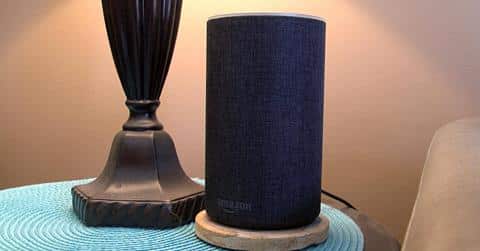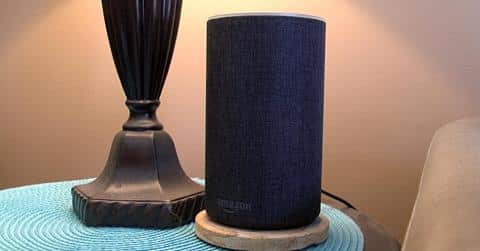Safety Net’s Jeff Mertz sat down with Kristen Lowe from TV 7 & 4 to discuss additional security steps to take when you invite personal assistant devices like Alexa into your home.
From UpNorthLive.com:

“It speeds up a lot of the things that you normally do,” said Daniella Thomas.
Thomas and her husband set up their first device, an Amazon Echo, earlier this year.
“Then you see, ‘Oh wow, we can do this, then we can do this,'” said Thomas. “Now we have 18 [units!]!”
But tech experts say all that convenience can come at a cost.
“They do send recorded data to cloud services where you don’t have control,” said Jeff Mertz, a senior network engineer at Safety Net Inc. in Traverse City.
The devices can connect to your smart phone, home appliances and streaming services. They know what you watch, what you buy and how you pay for it.
Unless you manually shut off the microphone, the devices are always listening. The box they can hear you from across the room.
In order to hear their “wake word”, the device has to be listening every second of every day.
“They process on that key word, they send that data to Google or Amazon or Microsoft,” Mertz said. “With their closed infrastructure, there’s no telling what data they’re keeping or sending from the device, but most scans have shown that they only send data during key word searches.”
But both companies can change what the devices do and how they do it without telling you.
“Right now it only turns on if you say, ‘Ok Google’ or ‘Alexa’,” said Mertz. “But if they push an update, and they push updates, you don’t control that. Then they could just start listening all the time.”
Mertz says Amazon and Google do a good job at privacy and your data is encrypted. But they may not be the only ones who can access your device.
“No one’s actually been [able] to get in and take one over yet,” said Mertz. “Though that is a concern.”
To protect yourself, Mertz says get a good firewall, have strong passwords on your accounts and update your firmware.
“Don’t use the cable modem with a built-in firewall and just assume that it’s going to be good,” Mertz said. “You want one that you have control of your passwords so you can set up security.”
Thomas invested in a high end router that does automatic updates, and is monitored by a security desk 24/7.
“Whether it’s an Alexa or a watch or a TV, it doesn’t matter…. think about it as a door into your home,” said Thomas. “You’re not going to add 50 doors and not lock them.”



